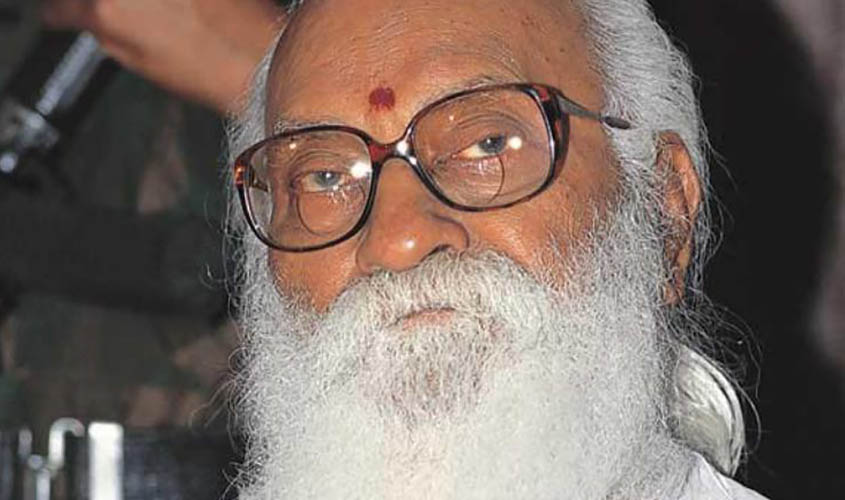In a reply to a letter, two Union ministries have said that the demand for ‘Social Work Day’ does not come under their purview.
NEW DELHI: After the announcement of Bharat Ratna posthumously for Nanaji Deshmukh, demands to include his philosophy in the social work curriculum have intensified. Also, the demand to declare his birth anniversary as “Social Work Day” has risen.
However, in a reply to a letter by academicians, initially written to the Prime Minister’s Office (PMO), and directed by the PMO to the Ministry of Social Justice and Welfare (MSJ&W) and the Ministry of Human Resource Development (MHRD), the ministries have said that the aforementioned demands don’t come under their purview.
Bishnu Mohan Das, general secretary of the Bharatiya Samaj Karya Parishad (BSKP) and former head of department of social work at Delhi University’s Ambedkar College, said: “We had written a letter to Prime Minister Narendra Modi demanding that the birth anniversary of Nanaji Deshmukh be declared as Social Work Day in the country, but the PMO forwarded our letter to the Ministry of Social Justice and Welfare and the Ministry of Human Resource Development to take an appropriate decision, but both the ministries replied that the demand doesn’t come under their purview. We had also demanded that Deshmukh’s work and philosophy be included in social work curriculum.”
The BSKP is a national body doing social work and has academicians and professionals from across India as members. Nanaji Deshmukh a social activist who had worked in the fields of education, health, and rural self-reliance, was also a member of the Rajya Sabha representing the Bharatiya Jana Sangh. He was conferred the Bharat Ratna last month. Deshmukh was born on 11 October 1916. He played an important role in the JP Movement of the 1970s and was a long-time member of the Rashtriya Swayamsewak Sangh. After his retirement from political life, Deshmukh established India’s first rural university—the Mahatma Gandhi Chitrakoot Gramoday Vishwavidyalaya (MGCGV)—in Chitrakoot in 1991 that spreads the Gandhian philosophy of village development. “Many of his unique and path-breaking ideas can inspire young social workers. The celebration of the Social Work Day will remind them that in India, we have a professional perspective of social work. The motive of BSKP is to promote indigenous philosophy and practice of social work and for that, there is a need to acknowledge the works of Mahatma Gandhi, Nanaji, Baba Amte, Vinoba Bhave and Anna Hajare,” Das said.
“Students studying social work must study the works of Nanaji Deshmukh who was the key figure in establishing the network of Saraswati Shishu Mandir (SSM); today, there are 20,000 SSMs. He was also instrumental in carrying out social restructuring programme in over 500 villages of both Uttar Pradesh and Madhya Pradesh. Also, Deshmukh implemented the philosophy of integral humanism to improve the living standards in over 150 villages of Bundelkhand,” Das added.
Siddheswar Shukla, a scholar at Makhanlal Chaturvedi University, said: “In order to outline the indigenous curriculum for students of social work, last year in June, academicians related to social work, in collaboration with the Mahatma Gandhi Antarrashtriya Hindi Vishwa Vidyalaya (MGAHVV) and Bharatiya Shikshan Mandal, had organised a two-day workshop. In the workshop, a new curriculum for Master of Social Work was drafted and the same curriculum was recently adopted by the MGAHVV.” “The curriculum for social work must conform to our values and culture; the current curriculum is borrowed from the West and it does not incorporate the great Indian tradition of social work. The new curriculum, which was drafted at the two-day workshop in Wardha, stresses on indigenous perspectives of social work,” Shukla said.
“Indian sages, social reformers and thinkers have bestowed on us holistic, integrated and a scientific concept of thinking and working with society. It’s high time academicians related to social work own up the responsibility to study the treasure trove of knowledge from professional social work perspective and develop new theories and approaches,” Shukla added.

